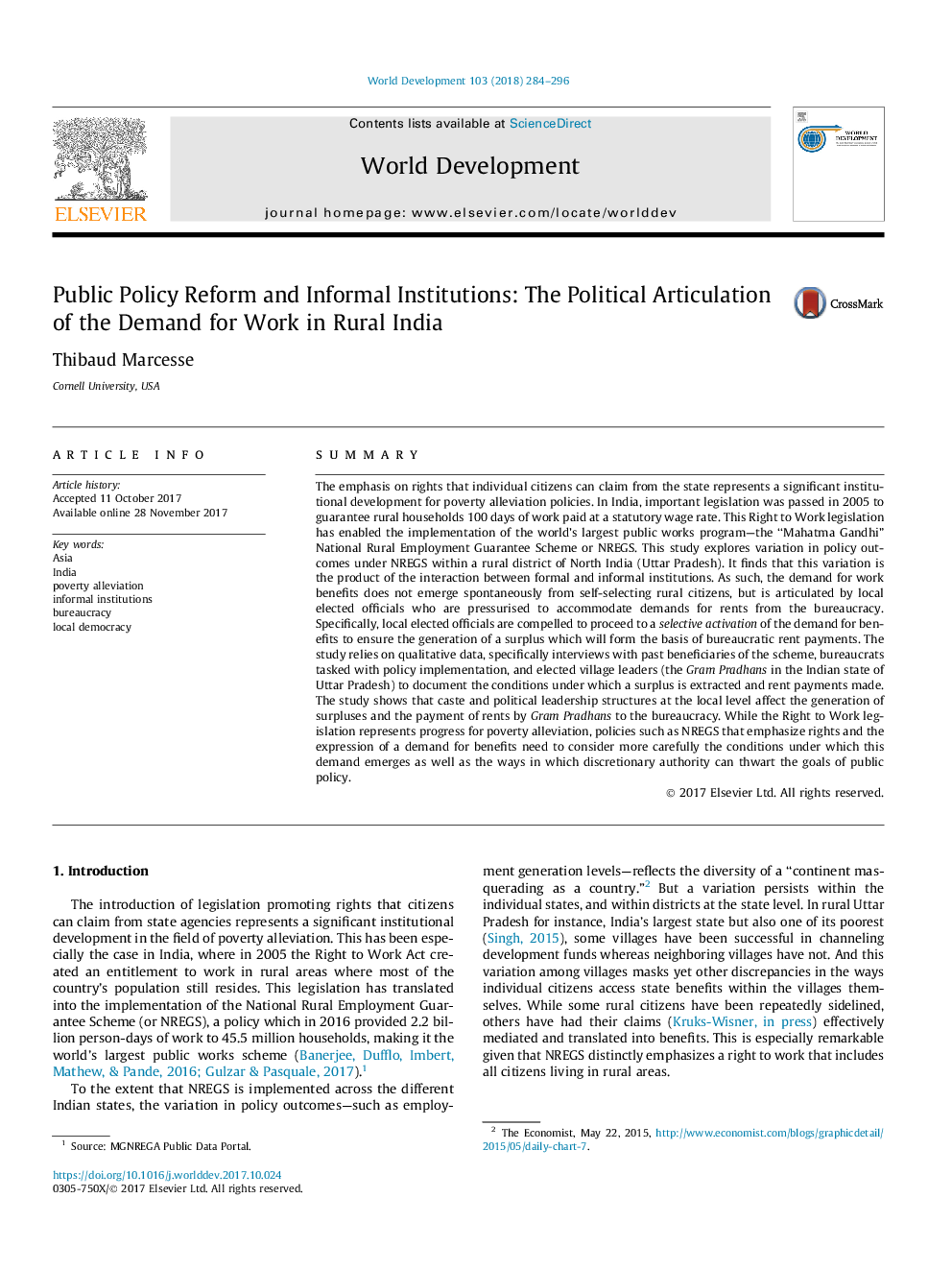| Article ID | Journal | Published Year | Pages | File Type |
|---|---|---|---|---|
| 7392343 | World Development | 2018 | 13 Pages |
Abstract
The emphasis on rights that individual citizens can claim from the state represents a significant institutional development for poverty alleviation policies. In India, important legislation was passed in 2005 to guarantee rural households 100â¯days of work paid at a statutory wage rate. This Right to Work legislation has enabled the implementation of the world's largest public works program-the “Mahatma Gandhi” National Rural Employment Guarantee Scheme or NREGS. This study explores variation in policy outcomes under NREGS within a rural district of North India (Uttar Pradesh). It finds that this variation is the product of the interaction between formal and informal institutions. As such, the demand for work benefits does not emerge spontaneously from self-selecting rural citizens, but is articulated by local elected officials who are pressurised to accommodate demands for rents from the bureaucracy. Specifically, local elected officials are compelled to proceed to a selective activation of the demand for benefits to ensure the generation of a surplus which will form the basis of bureaucratic rent payments. The study relies on qualitative data, specifically interviews with past beneficiaries of the scheme, bureaucrats tasked with policy implementation, and elected village leaders (the Gram Pradhans in the Indian state of Uttar Pradesh) to document the conditions under which a surplus is extracted and rent payments made. The study shows that caste and political leadership structures at the local level affect the generation of surpluses and the payment of rents by Gram Pradhans to the bureaucracy. While the Right to Work legislation represents progress for poverty alleviation, policies such as NREGS that emphasize rights and the expression of a demand for benefits need to consider more carefully the conditions under which this demand emerges as well as the ways in which discretionary authority can thwart the goals of public policy.
Related Topics
Social Sciences and Humanities
Economics, Econometrics and Finance
Economics and Econometrics
Authors
Thibaud Marcesse,
